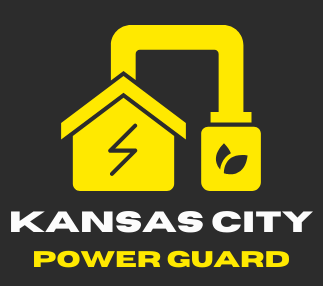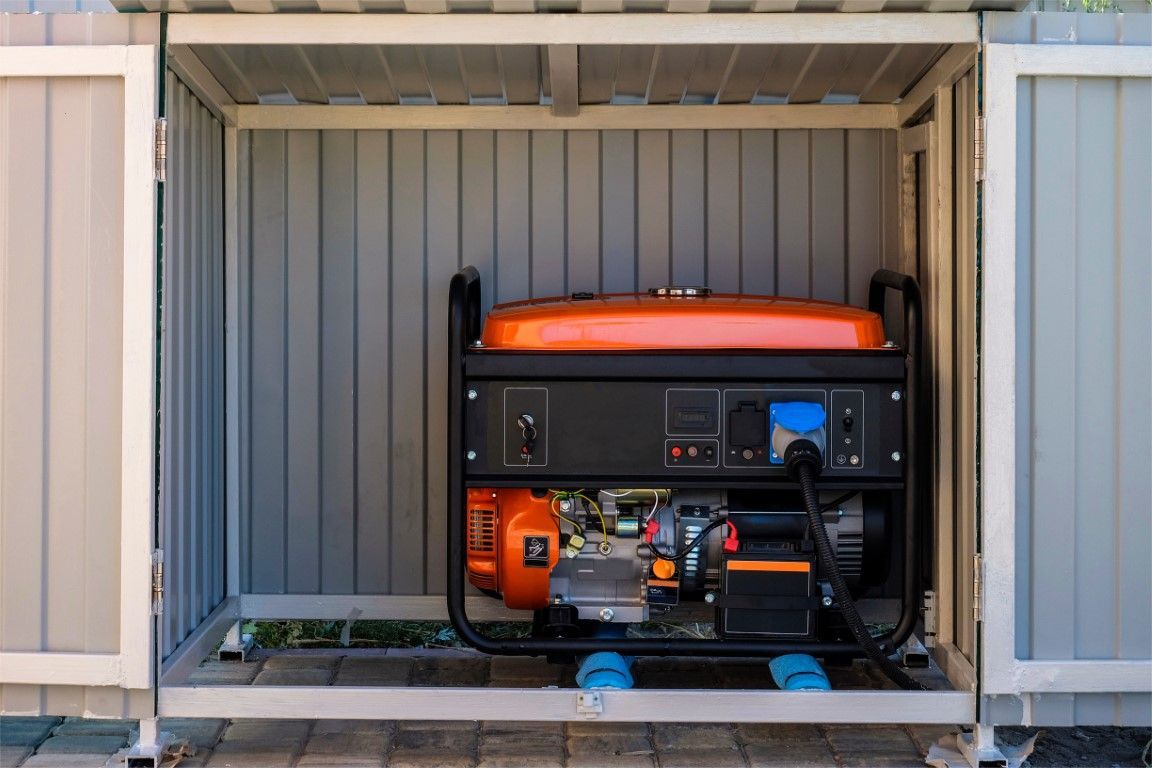
Propane Generators in Kansas City MO
Propane generators are devices that generate electricity by burning propane gas. Unlike other types of generators that use gasoline or diesel, these generators rely on propane—a gas commonly used for heating and cooking. They are particularly useful for providing power when you don't have access to your regular electricity supply.
The main purpose of a propane generator is to supply electrical power in situations where it's otherwise unavailable. They are especially handy during power outages to keep essential appliances like refrigerators and medical equipment running. Propane generators are also great for outdoor activities, such as camping, or for job sites where electricity isn’t accessible.
Propane generators come with several benefits. They burn cleaner than gasoline or diesel generators, which means they produce fewer pollutants and are better for the environment. Additionally, propane doesn’t spoil over time like gasoline, making it easier to store. These generators come in various sizes, from small, portable units to larger, stationary models, so you can find one that fits your needs, whether for home use or commercial purposes.
What is Propane?
Propane is a fuel that comes from processing natural gas and refining oil. It’s stored in tanks and is used for various purposes, including powering generators. Propane is favored because it burns cleanly and efficiently, which helps keep the generator running smoothly with less environmental impact.
Storing and Delivering Propane
Propane is stored in pressurized tanks. These tanks can be large for stationary setups or smaller for portable generators. The fuel is delivered to the generator through a hose or pipe. It’s important to store propane tanks safely—in a well-ventilated area away from heat sources—to avoid any hazards.
Using Propane to Power the Generator
When the generator is in use, propane is mixed with air and fed into the engine. The engine ignites this mixture to create a controlled explosion. This explosion moves the engine’s pistons, which in turn spin the generator’s shaft and produce mechanical energy.
Turning Mechanical Energy into Electricity
The mechanical energy generated by the engine is then used to drive the generator, which converts this energy into electrical power. Inside the generator, a rotating magnet creates a flow of electricity through coils of wire. This electrical power is then available to run your appliances and devices.

We will get back to you as soon as possible.
Please try again later.
In summary, propane generators are effective and environmentally friendly tools that use propane to create electricity. By understanding how they operate—from fuel use to the generation of power—you can better choose the right generator for your needs and ensure it runs efficiently.
Key Benefits of Using Propane Generators
Propane is a clean-burning fuel, which means it produces fewer pollutants compared to gasoline or diesel. This results in lower emissions of harmful gasses like carbon monoxide and nitrogen oxides. Using propane helps reduce your environmental impact, making it a more eco-friendly choice for generating electricity.

Environmental Benefits
Because propane burns more cleanly, it contributes less to air pollution. This makes propane generators a better option for those concerned about their carbon footprint and who want to choose a greener energy source. Overall, propane helps keep the air cleaner and reduces the environmental harm associated with other fossil fuels.
Storage Durability

One of the significant advantages of propane is its long shelf life. Unlike gasoline, which can degrade and become less effective over time, propane remains stable in storage for extended periods. This means you can store propane for your generator without worrying about it going bad, ensuring it’s ready to use when you need it.
Less Degradation Over Time
Propane doesn’t degrade or break down as quickly as gasoline or diesel. This stability means that even if you store propane for a long time, it will still perform effectively. This characteristic makes propane generators a reliable choice, especially if you need to keep fuel on hand for emergencies or infrequent use.
Propane Availability
Propane is widely available and can be found at many gas stations, home supply stores, and specialized propane dealers. This makes it relatively easy to refuel your generator, whether you’re at home or on the go. The accessibility of propane helps ensure that you won’t have trouble finding fuel when you need it.
Convenience of Refueling
Refueling a propane generator is straightforward and convenient. The process typically involves connecting a propane tank to the generator, which is a simple task compared to the more involved refueling processes for other fuels. This ease of refueling means less hassle and more reliable operation when you need power.
Generac standby whole-house generators boast advanced technology, rugged construction, quiet operation, and remote monitoring and control capabilities. With these outstanding features, Generac generators deliver homeowners, a dependable and convenient backup power solution for their residences. If you're contemplating investing in a standby whole-house generator, our team is ready to assist you in discovering the advantages of Generac generators and identifying the perfect option to suit your requirements.
Considerations for Choosing a Propane Generator
When selecting a propane generator, it's essential to evaluate several factors to ensure you get the right one for your needs.
Before buying a propane generator, determine how much power you need. Start by listing all the appliances and devices you want to keep running during an outage or in a remote location. Check the wattage requirements of each item. For instance, a refrigerator might need 800 watts, while a microwave could require 1,200 watts. Add up these numbers to get your total wattage requirement.
Generators come in various sizes, measured in watts. After calculating your power needs, select a generator that can provide enough wattage. It's often a good idea to choose a generator with a slightly higher capacity than your calculated need. This extra capacity ensures that the generator can handle any unexpected power surges and gives you some flexibility for future power needs.
Propane tanks come in different sizes, and the capacity of your tank will affect how long your generator can run. Larger tanks provide longer run times but take up more space. Consider how long you need the generator to operate during a power outage or while you’re away from a fuel source. For frequent use, a larger tank might be more convenient, while a smaller tank could suffice for occasional use or shorter durations.
Proper installation and placement of the propane tank are crucial for safety and efficiency. Place the tank in a well-ventilated area, away from heat sources and potential hazards. Ensure the tank is installed according to local regulations and guidelines. This often involves securing the tank and connecting it to the generator with appropriate hoses and fittings. If you’re unsure about the installation process, it’s a good idea to consult with a professional to ensure everything is set up correctly.
The cost of a propane generator can vary based on its size, features, and brand. When budgeting for your generator, consider the initial purchase price and compare it to other types of generators, like gasoline or diesel.
Beyond the initial cost, think about the ongoing expenses of operating and maintaining the generator. Propane itself is generally less expensive and easier to store than gasoline or diesel. However, you should also factor in the costs of routine maintenance, such as oil changes and filter replacements. Regular maintenance ensures your generator runs smoothly and lasts longer, so it’s important to include these costs in your budget.
Choosing the right propane generator involves assessing your power needs, understanding tank size and setup requirements, and considering both the initial and long-term costs. By carefully evaluating these factors, you can select a generator that meets your needs and fits your budget, ensuring reliable power whenever you need it.
Let's Connect!
We offer expert services in standby whole-house generators, ensuring your home stays powered during outages. Our team provides professional installation, maintenance, and support, delivering peace of mind to homeowners. Hire us today for reliable backup power solutions tailored to your needs.
